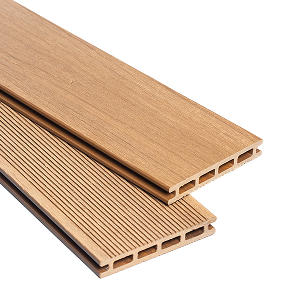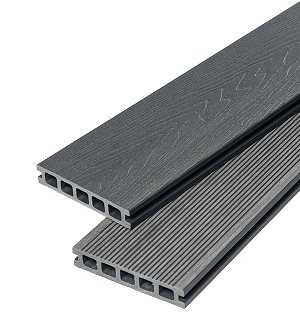 Previous Article
Previous Article
What is the Best Non-Slip Decking? A UK Expert Comparison


Choosing the “best” composite decking can feel like a complex task, whether you’re a homeowner envisioning a new outdoor space, a professional builder, or a property developer. With the diverse range of plastic decking materials available, discerning quality and value often comes down to understanding what distinguishes different brands.
The market for composite decking, particularly in the UK, offers numerous options, from internationally recognised names to more localised suppliers. This abundance naturally leads to a common question: Which brand of composite decking is truly the best for my needs?
There isn’t a single “million-pound answer” that fits everyone. The “best” choice is highly subjective, depending on factors such as your priorities for service and support, your budget for value versus luxury, and your specific aesthetic preferences. The key is to conduct thorough research and align your decision with your unique project requirements and financial plan.
It’s crucial to understand that not all composite decking boards are created equally. Manufacturers use varying qualities of raw materials and different production processes, which directly impact the final product’s durability and performance.
Initially, many composite decking boards may appear similar in appearance. However, the true measure of a brand’s quality reveals itself over time. The long-term performance of a composite deck in real-world conditions by actual customers is arguably the most reliable indicator of its quality. To gain this insight, we strongly recommend exploring customer reviews and comments on various forums and community platforms. Look specifically for feedback from individuals who have had their decking installed for several years to understand how different brands genuinely perform over extended periods.
In the UK market, composite decking brands span a wide spectrum. You’ll find brands renowned for exceptional service and value, others known for their luxurious appeal at a premium price point, and some offering more budget-friendly options that may, however, compromise on material quality. The adage “you get what you pay for” often holds true in this industry. It’s generally advisable not to compromise long-term quality for immediate cost savings, as a seemingly “cheap” initial investment can often lead to more significant expenses down the line if the product fails prematurely.

To help you make an informed decision, consider these critical factors when evaluating different composite decking brands and materials:
There’s a direct relationship between quality and price in the composite decking market. As the price increases, you should reasonably expect higher quality, enhanced features, and potentially longer warranties. However, a high price tag doesn’t automatically guarantee the best product for your specific needs, nor does a lower price necessarily mean poor quality. Always assess whether the cost aligns with the type of composite board (e.g., capped vs. uncapped, solid vs. hollow core) and the long-term value it offers for your investment. Research the composition and manufacturing process to understand what justifies the price point.

Composite decking boards often come with a range of beneficial features that can vary significantly between brands. For instance, many premium brands offer enhanced resistance to:
Due to advanced UV inhibitors in the capping layer.
From common spills like oil or red wine
Through textured surfaces or specialised finishes.
With durable outer shells
Through low moisture absorption and protective layers.
Evaluate which specific features are most important for your climate, usage, and maintenance expectations. A highly durable board might lack superior fade protection, or vice-versa. Understand the full “features, advantages, and benefits” (FAB) of each brand’s offerings

For many homeowners, contractors, and developers, reliable customer support is a pivotal factor. Consider brands that demonstrate:
Ensuring your project stays on schedule
Quick and accurate answers to your questions before, during, and after purchase.
Assistance with installation queries, warranty claims, or troubleshooting.
Brands with a long history of supplying, designing, and developing products often indicate stability and a proven track record of standing behind their products. Companies that have consistently served the market for a number of years are generally a safer bet for long-term support and warranty fulfilment.

Beyond a brand’s own marketing, real-world customer comments and reviews are invaluable
Consult independent review websites like Trustpilot or Feefo.
Explore dedicated composite decking communities, forums, and social media groups where users share their long-term experiences.
Be mindful of reviews that focus solely on initial delivery or installation. While important, prioritise feedback discussing how the product has performed after several years of service, including any issues with fading, warping, or deterioration. Be wary of overly positive reviews that lack specific details or appear generic, as well as brands with numerous complaints about product failure after a short period. A well-researched decision will help you avoid potentially costly pitfalls.

Author: Allan Jeffrey BSc Hons. CEO of Ultra Decking®. Structural Engineer & Composite Materials Specialist.
 Previous Article
Previous Article
What is the Best Non-Slip Decking? A UK Expert Comparison

Ultimate Guide For Type Composite Decking